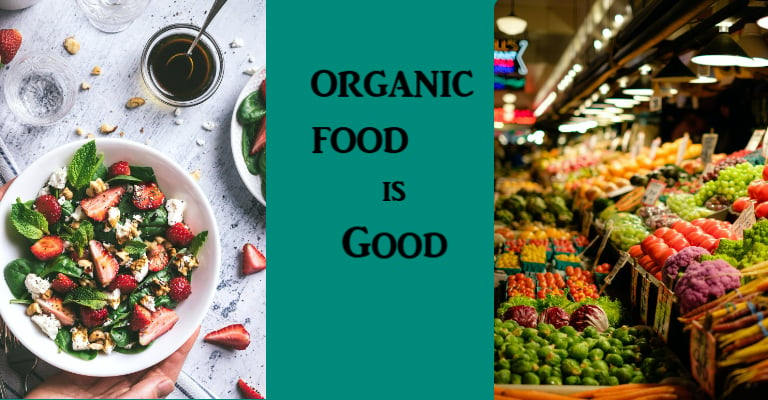Visit Innatefit1.com for exercise wear and equipment!!!
How to Start Organic Eating Without Overhauling Your Whole Life
Discover how to begin an organic lifestyle without making drastic changes. Practical tips, budget swaps, and easy routines to go organic successfully.
SELF-HELPHEALTHY LIFESTYLEFITNESS TIPSNUTRITION AND RECOVERYHEALTH
Joseph Battle
6/28/20254 min read


Introduction
Making the switch to organic doesn’t have to mean a total lifestyle overhaul. Whether you’re wondering how to start an organic diet or simply exploring healthier food options, small, intentional changes can lead to significant results. In this guide, you’ll discover that organic eating—eating foods grown and produced without synthetic pesticides, GMOs, or artificial additives—can be approachable, affordable, and enjoyable. We’ll break down each step, from understanding what organic eating is to avoiding budget-sapping beginner mistakes, all while crafting routines that stick. Ready? Let’s get started!
What Is Organic Eating and Why It's Not as Complicated as It Sounds
Organic eating refers to consuming food items grown or raised without synthetic pesticides, chemical fertilizers, genetically modified organisms (GMOs), antibiotics, or growth hormones.
Certified by entities such as the USDA (United States Department of Agriculture) or the EU organic boards, these foods undergo rigorous standards to ensure adherence to natural farming practices and environmental integrity. That doesn’t mean organic equals exorbitantly expensive or fussy—it simply means choosing options closer to nature.
Easy Wins: Understanding Labels
USDA Organic indicates a minimum of 95% organic content.
Made with organic, at least 70% organic, though not fully USDA certified.
Certified Naturally Grown – a grassroots equivalent recognized in some regions.
Debunking Myths
It’s cost-prohibitive: Only certain high-risk produce (the “Dirty Dozen”) needs organic prioritization.
Non-organic equals unhealthy: While organic may reduce specific chemical residues, a diet rich in fruits, veggies, and whole grains is the real key.
Organic is elitist: With a strategic mindset, organic eating can fit modest budgets.
By reframing organic eating for beginners as a journey of mindful improvement—not an all-or-nothing leap—you gain flexibility and confidence. A few smart swaps can lower your pesticide exposure and support sustainable farming without breaking the bank or overhauling every meal.
Organic Eating for Beginners: Small Swaps That Make a Big Impact 🤏
Want to ease in? Start small and strategically. Focus on high-risk produce—the Dirty Dozen—such as strawberries, spinach, apples, and grapes. Choosing organic for just these items can dramatically reduce pesticide exposure. Swap conventional milk or cheese for organic dairy products or opt for organic eggs. These changes deliver better animal welfare and fewer additives.
Top Beginner Swaps
Fruits & Veggie Priority – Strawberries, peaches, kale, spinach, grapes.
Dairy Switch – Organic milk, cheese, yogurt (fewer hormones, antibiotic concerns).
Egg Upgrade – Organic, pasture-raised eggs for better nutrients.
Grains & Cereals – Organic oats, quinoa, whole grains.
Baby Steps into Meat – Organic or sustainably raised meat for occasional meals.
Budget-Friendly Tips
Buy smaller quantities to test organic options.
Shop seasons—organic strawberries cost less in spring, not in high season.
Combine conventional and organic in the same salad or stir-fry.
These small, manageable organic food shopping tips set you up for success without feeling overwhelmed.
How to Start Organic Eating Without Tossing Out Everything in Your Fridge
One of the biggest concerns? “Do I have to throw out everything non-organic?” The short answer: no. Starting organic eating means layering improvements, not erasing your pantry.
Take Stock, Don’t Purge
Inventory: Any fresh greens? Use it up in smoothies or soups.
Pantry raid: Look at canned beans, dried grains—up to you whether you replace them later.
Freezer check: If some frozen vegetables aren’t organic, mix them with fresh ones.
Blend Conventional + Organic.
Make a salad with organic leafy greens but conventional carrots and peppers.
Cook pasta with organic tomato sauce and conventional cheese.
Blend conventional bananas with frozen organic berries.
This intentional mix—rather than tossing—reduces waste and helps costs. Your organic routine gradually grows as conventional products expire and are replaced by organic ones. It’s sustainable, realistic, and gentle on your wallet.
Avoid These Organic Food Beginner Mistakes That Drain Your Budget
Many beginners fall into traps that derail their goal to eat organic food affordably. Here’s how to avoid the common pitfalls:
1. Buying Everything at Once
A shopping cart full of organic versions of every item spells budget bruising. Instead, focus on a few key items each week and rotate them.
2. Ignoring Seasonality
Summer berries, winter root veggies—season matters. Seasonal organic produce is often more affordable and fresher.
3. Falling for Buzzwords
Labels like “all-natural,” “hormone-free,” or “non-GMO” can be marketing fluff if they're not certified organic.
4. Bulk Waste
Organic berries go bad faster. Only buy what you'll use. Share a large bag with a friend if needed.
5. Skipping Meal Prep
Lack of planning leads to impulse buys. Meal prep ensures you use fresh produce and prevents food from spoiling.
By avoiding these common organic food mistakes, you can protect your budget while still pursuing healthier, greener choices.
Smart and Simple Organic Food Shopping Tips for Everyday People
Organic shopping doesn’t require time-consuming trips or exotic markets—just a brilliant plan. Here’s how:
Prep a Master List
Organize items into:
Must-buy organic: Dirty Dozen produce, dairy, eggs
Nice-to-have: Grains, spices, packaged beans
Optional: Snacks, occasional meat
Read Labels Carefully
“100% Organic” = all organic ingredients.
“Organic” => 95% organic.
“Made organic” => 70% organic. Less regulated.
Hit the Farmers' Market
Locally grown, organic, or naturally grown produce may be more affordable. Chat with growers about their methods. Bring reusable bags and compare prices to supermarkets. Bonus: freshness, seasonality, community.
Use Bulk Bins & Value Packs
Buy organic oats, grains, and nuts by weight. Better than packaged versions. Refill your containers—waste less plastic too.
Budget-Savvy Tactics
Track prices month after month.
Join store loyalty programs for sales.
Save seasonal deals for later.
These organic food shopping tips make the shift doable for busy adults juggling work, family, and life.
Building an Effortless Organic Routine, You’ll Stick To
The secret to lasting organic habits? Simplicity and consistency. Plan a routine that transforms intentions into habits.
Plan Weekly
Designate one day for meal prep—wash, chop, freeze produce.
Plan 2– 3 organic-focused meals: one salad, one stir-fry, and one soup.
Batch & Freeze
Make a large pot of organic soup or stew using a mix of conventional produce. Freeze leftover portions.
Blend smoothie bags with organic fruit and veggies you've prepared, ready to go.
Keep Family Informed
Make it fun! Let kids choose one organic item each week—host “choose-your-own” nights.
Track Progress
Use a simple log or photo diary. Celebrate small wins, like eating organic berries three times a week.
Stay Flexible
Life happens. If organic isn’t available, do what you can. The routine is organic, not perfect.
Building routines around eating organic keeps the process seamless and stress-free. Over time, it becomes just part of life.
Conclusion
Switching to organic doesn’t require an immediate, total life overhaul. By understanding what organic eating is, making organic eating for beginners manageable with small swaps, transitioning without waste, avoiding bane like impulsive spending, and putting in place organic food shopping tips and sustainable routines, you can transform your habits in realistic, budget-friendly steps. Ready to start? Your first move could be swapping one item this week. Ready to share your journey? I’d love to hear how small changes lead to big wins.




